Chelsea need to let John Terry go in order to embrace the future
The Blues skipper says he’s likely to end his 21-year association with the club at the end of the season, but whether true or not it’s probably for the best, writes Alex Hess...
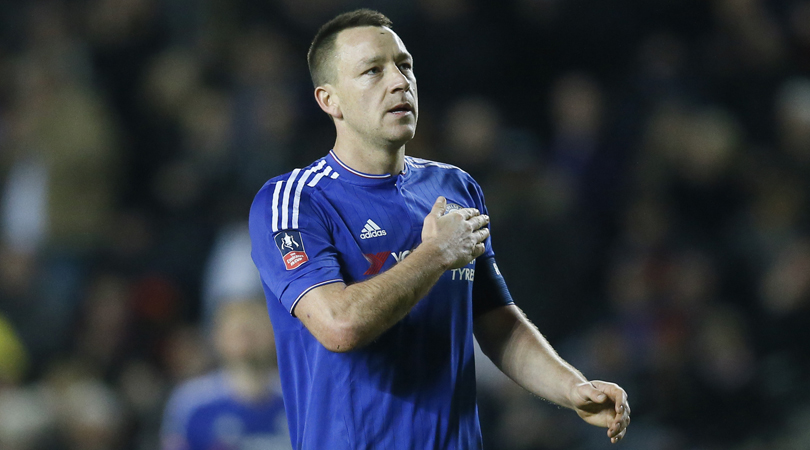
It’s one of football’s odder facts that Chelsea, in the 13 years since the club’s takeover and its rebirth as a genuine superpower, have only won one league title under a manager other than Jose Mourinho.
It’s not coincidence, though: despite nearly a decade having elapsed since the manager’s first departure and over half a billion spent in that time on transfer fees to overhaul the squad year on year, you always got the sense that the club held an unhealthily fixation with that great side of the mid-2000s; the one led by Mourinho and embodied by the spine of Petr Cech, Frank Lampard, Didier Drogba and, most enduringly, John Terry.
Rat race
Stamford Bridge, rocked by the departure of Mourinho, made its hostility known toward the so-called ‘Three Rats’, despite each of them having been instrumental in the club’s title win mere months earlier
There’s no harm in cherishing the good times but clinging onto a long-gone past is another thing entirely. And certainly there is an odd dynamic at work when a fan base sees fit to deify a departed manager and declining captain while actively vilifying the players that represent the club’s here and now.
And yet that was exactly what happened only a few weeks ago when Stamford Bridge, rocked by the departure of Mourinho, made its hostility known toward the so-called ‘Three Rats’, despite each of them having been instrumental in the club’s title win mere months earlier.
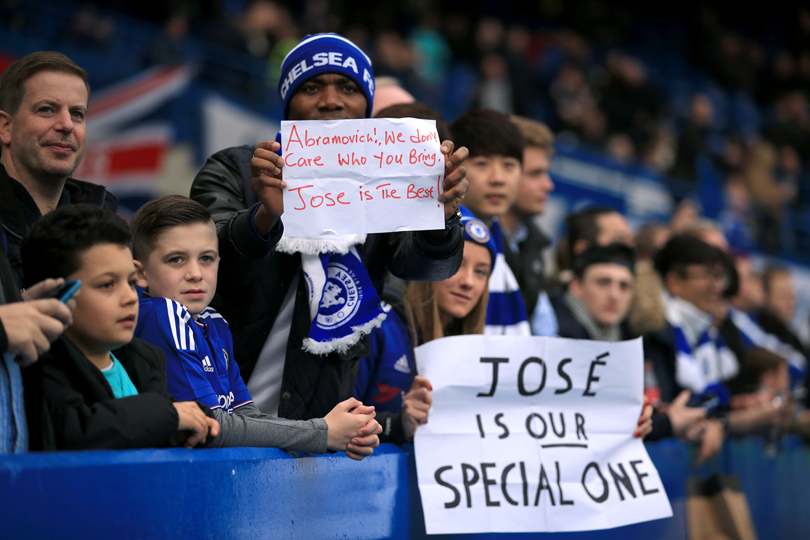
A relatively minor event, perhaps, but one that was symptomatic of Chelsea’s warped relationship to its recent history. A decade spent gazing longingly back at the early Abramovich years has reaped few benefits, and what success the club has encountered in the intervening time has been resoundingly short-term as a result.
But with Terry to leave in the summer, Chelsea might finally be empowered to start looking forwards and to build something new and sustainable (that doesn’t involve Papy Djilobodji, admittedly).
Get FourFourTwo Newsletter
The best features, fun and footballing quizzes, straight to your inbox every week.
With various post-Mourinho regimes crumbling in their early stages amid whispers of dressing room discontent, the suspicion that Chelsea was an institution unable to shake off a powerful nostalgia for their initial glory years didn’t take long to catch on. When the club re-hired their old flame in 2013, it seemed both entirely misguided and entirely logical.
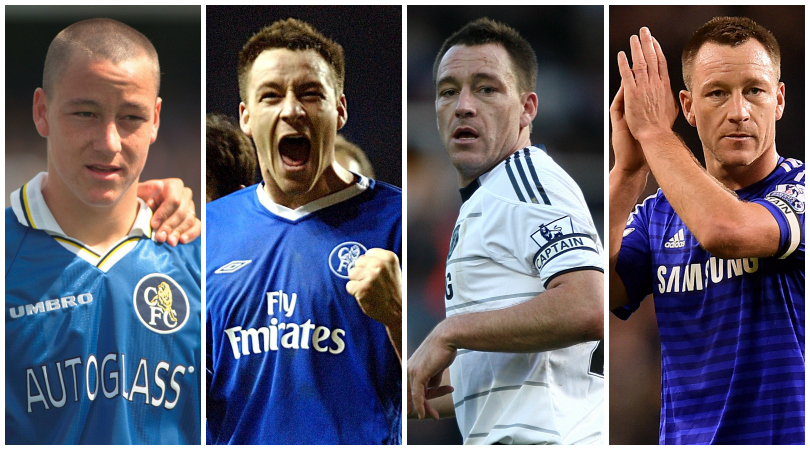
As it happens, it was both. It wasn’t long before Mourinho had Chelsea lifting that familiar old trophy again – and not only by playing that hard-nosed, hard-to-beat football that so many managers had been tasked with edging the club away from. As if to force the point home, he did it with Drogba having been re-signed up front, with Terry reprising his role and the indomitable safeguard at the heart of the defence (in the season before Mourinho’s return Terry had started just 14 league games in what many saw to be the start of his marginalisation).
All well and good, but, like an ageing rock band clanking their way through one last stadium tour, that season was only ever likely to be a temporary reprisal. Getting the old gang back together may have been good for one last trophy-hoisting hurrah but for a club attempting to crawl out of the shadow of the very regime it had actively gone about reinstating, the long-term benefits were questionable at best.
To the future
The argument that his status and leadership skills should render him part of the furniture overlooks the myriad problems that would bring
Terry isn’t just inextricable from that first golden era, he is emblematic of it in a way that presents various problems.
In purely practical terms, his need for team-mates to compensate for his deepening deficiencies – with a low defensive line and the constant snuffing out of through-balls by his midfield – is not conducive to the sort of front-foot football that the vast majority of elite-level teams now aspire to, and that Roman Abramovich has long been rumoured to pine after.
In that respect, the aspirations of Chelsea’s owner have always seemed somewhat at odds with the requirements of its captain. It’s no coincidence that Andre Villas-Boas and Rafa Benitez, the two managers who tried to recalibrate the team’s playing style to the whims of the owner, both quickly discovered system and individual to be incompatible, Villas-Boas’s set-up undermined by Terry’s lack of pace and Benitez’s simply not involving it at all. Nor is it coincidence that in both instances, Terry remained while the managers were issued their P45s and sent on their way.
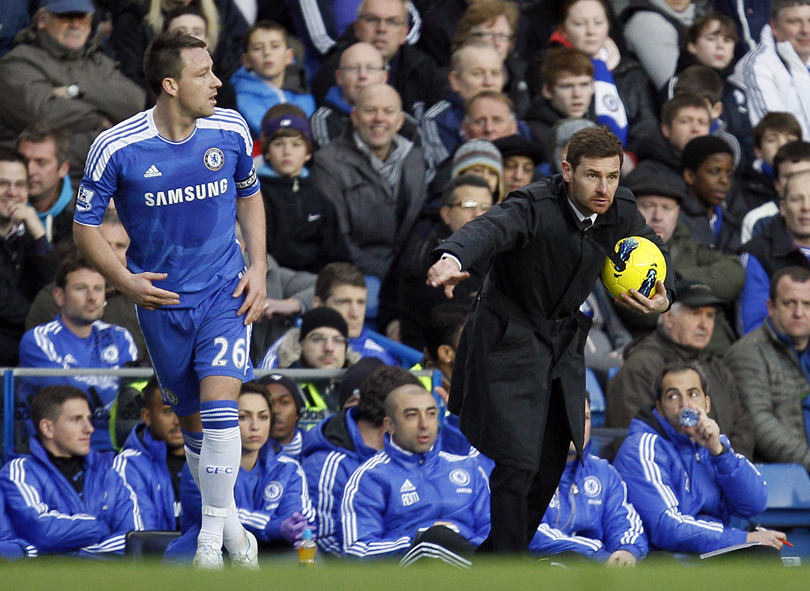
As tends to be the case when a legend is let go, many have been quick to claim that Terry’s services to Chelsea should have earned him the unquestioning loyalty of the board; a job for life.
These eulogisers give the impression that Terry has been doing his job for free for all these years rather than in exchange for many hundreds of thousands of pounds a week. And in any case, to borrow a line from Clint Eastwood: “Deserve’s got nothing to do with it.” The obligation of Chelsea’s board is to the long-term future of the club, with all the ruthlessness that might entail.
No more drama
The argument that his status and leadership skills should render him part of the furniture overlooks the myriad problems that would bring. Leaving aside the fact that Terry has often proven himself a wilfully divisive presence when Stamford Bridge’s semi-regular power battles have taken hold, the continued residence of such a dominant and high-profile figure would simply draw headlines and controversy where none was needed.
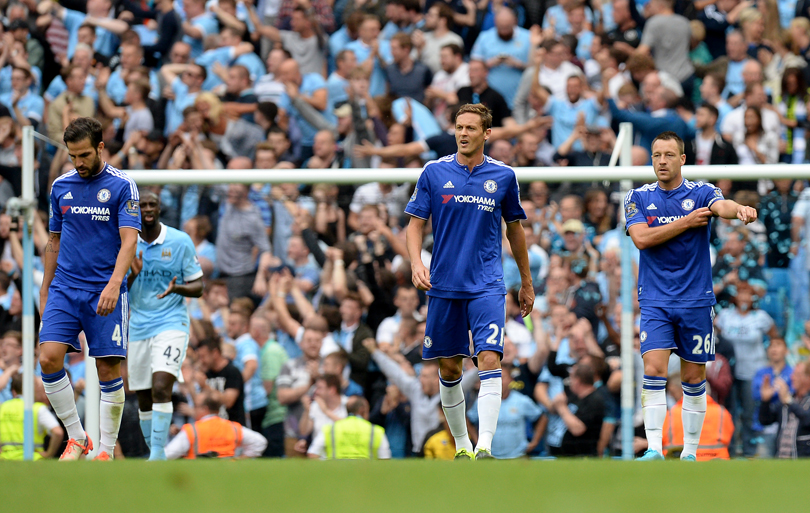
Every omission from the team would be interpreted as a managerial spurning (see Manchester City away earlier in the campaign, when Terry was withdrawn at half-time), every point dropped without Terry in the side would have a headline-hungry media seeing correlation and causation as one and the same.
In the unlikely event that no antipathy existed between Terry and his manager, it would be invented anyway. For a new boss trying to foster identity within a young team, it is undermining in the extreme: just ask Brendan Rodgers.
Eased out
The idea of keeping club legends around to bequeath traditions to the next generation is very charming but it often plays out far better in theory than it does in practice
Those who point to the seamless manner in which Manchester United worked to move Paul Scholes and Ryan Giggs into part-time playing roles in their dotage must appreciate how that was facilitated by the presence of Alex Ferguson, a manager whose authority trumped that of his senior players many times over. There is no such figure at Stamford Bridge. The idea of keeping club legends around to bequeath traditions to the next generation is very charming but it often plays out far better in theory than it does in practice, and it’s dependent on the grace and humility of the people in question. There is a reason why it was Scholes and Giggs who were kept on at United while Roy Keane was dispatched to Celtic once the limbs began to creak.

Whisper it, but maybe the next generation of starlets would rather not have to be faced every day with the man whose boots they’re expected to fill. Quite often in these situations, it takes one leader to make themselves scarce in order for the next to emerge (think of the acceleration in Cesc Fabregas’s maturity in the wake of Thierry Henry’s departure from Arsenal, or Rio Ferdinand’s transformation once Keane left Old Trafford).
Nostalgia is a powerful drug at the best of times, and it’s the understandable instinct of supporters to see any link to a glorious history as something to be celebrated and extended. In fact, the opposite is probably true: Chelsea is a club with an unhealthy attachment to its past, unable to build for the future for this very reason.
There’s little debate over the fact that Terry has been a magnificent defender over the years but he is a symbol of a time which Chelsea need to move on from rather than keep trying to relive. Once he is finally gone, forward momentum should finally be possible.
RECOMMENDED
